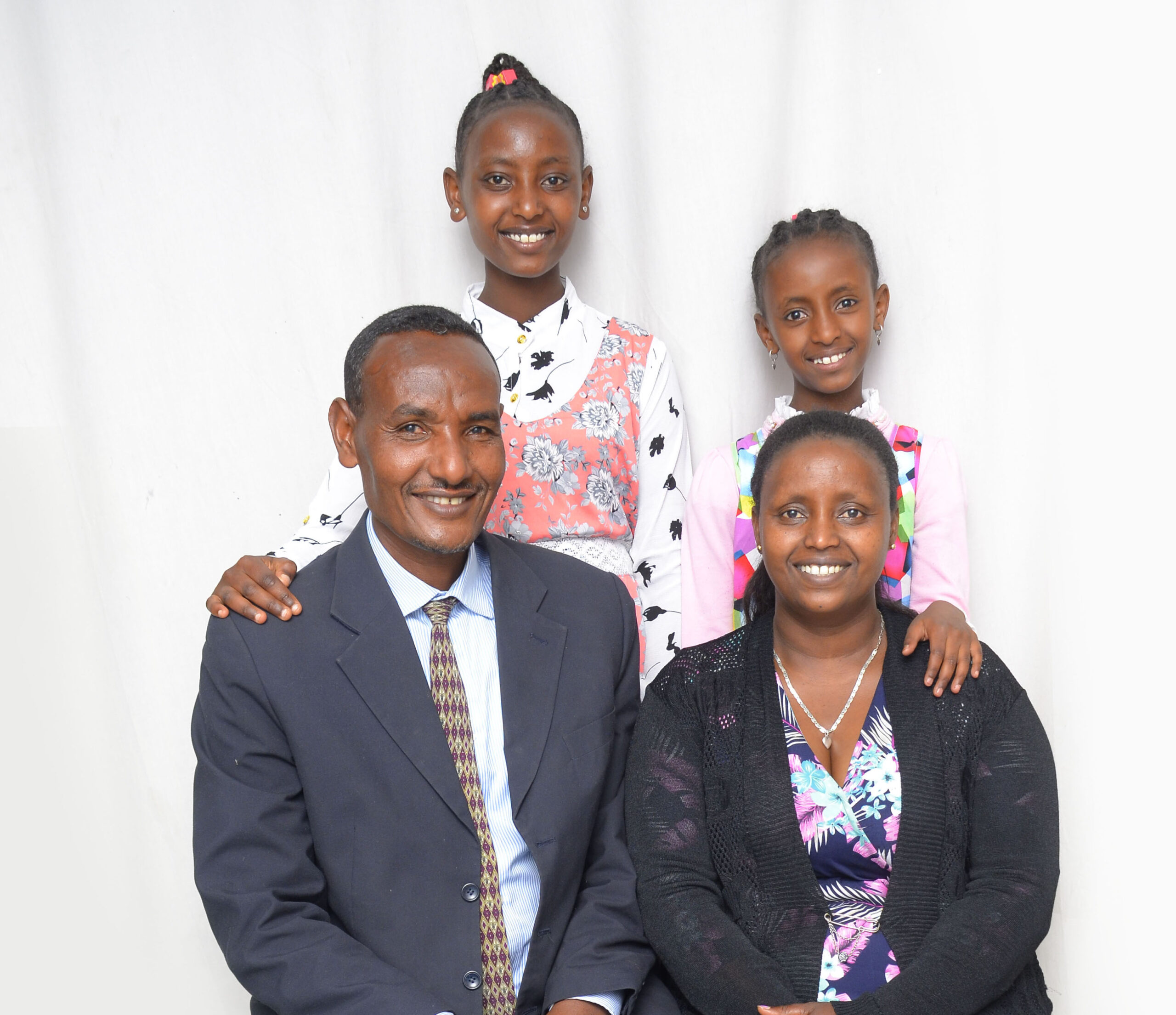About The Missionary
Sebsibe grew up in family that worshipped idols. He never heard of the gospel of the Lord Jesus Christ. He spent his life in false religion and sin. Then, in September 1990, when he was 19
years old, Sebsibe heard the gospel message. He received the Lord Jesus Christ as his personal Savior, and his life radically changed.
Sebsibe’s ministry testimony is this:“I have seen many coming to church and being saved by the amazing grace of the Lord. The burden of winning souls led me to give more of my time in prayer and the study of the Word, preaching and teaching newly converted. The church leaders noticed my gift and call and asked me to give my full time as an evangelist of the local church. I was delighted in the recognition of my call and gladly worked full time for more than 10 years in the service of the gospel.”
Today, Sebsibe and his wife, Sina, serve the Lord in church planting north of the Ethiopian capital of Addis Ababa.
Latest Prayer Letter
Project Giving Opportunities
Church Land
- Need: $130,000Updates From The Field
Sorry, there are no updates at this time.
About The Field:
Ethiopia, situated in the Horn of Africa, grapples with a range of economic complexities and social challenges that impact its population.
Economically, Ethiopia has seen growth in sectors like agriculture (coffee, livestock, and crops), manufacturing, and services. However, the country faces challenges such as limited access to capital and financing, underdeveloped infrastructure, and vulnerability to climate change, which affects agricultural productivity, a key component of the economy.
Social challenges in Ethiopia are diverse and impactful. Access to quality education remains a concern, particularly in rural areas, with disparities in educational resources and infrastructure. Healthcare accessibility and affordability also pose challenges, leading to disparities in health outcomes, especially in remote regions.
Ethiopia faces issues related to poverty, with a considerable portion of the population living below the poverty line. Income inequality is prevalent, impacting living standards and opportunities for many Ethiopians, particularly in rural communities.
Environmental sustainability is a significant concern, with challenges related to deforestation, land degradation, and susceptibility to climate-related disasters like droughts and floods, which affect livelihoods and exacerbate food insecurity.
Political tensions and ethnic conflicts in certain regions of Ethiopia contribute to social complexities and security concerns, impacting community stability and well-being.
Balancing economic growth with social development remains a challenge as Ethiopia navigates these multifaceted issues, seeking to address them while striving for inclusive growth and sustainable development for its diverse population.
